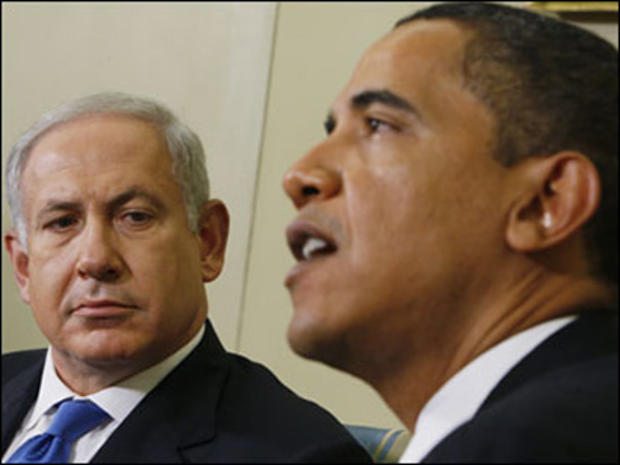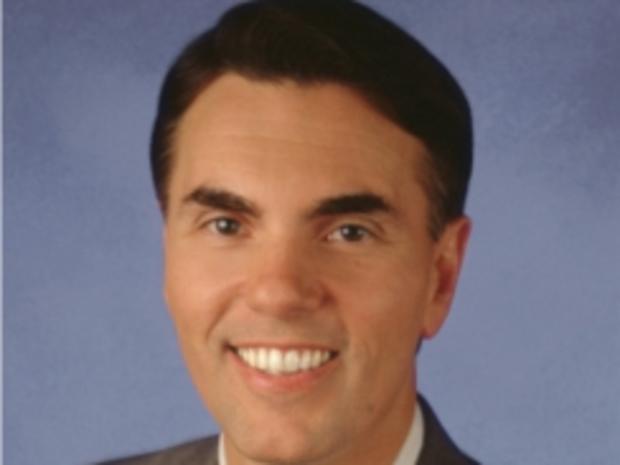Obama, Netanyahu Will Learn They Need Each Other
Barack Obama and Benjamin (Bibi) Netanyahu will find again today, as they meet in the White House, that however much they may annoy each other - and they do - they also need each other. Their ability to forge a new relationship, preferably with mutual respect and trust that eluded them, may well determine whether, how, and when Israel will attack Iran's nuclear facilities.
Israel's military and its intelligence community are constantly preparing for a possible attack aimed at damaging and delaying Iran's march toward nuclear weapons, and sources close to the planning say there is no expectation that the United States would take part.
"We don't ask anybody to do our fighting for us," said a senior official who requested he not be named, "but it is true that we would be asking for re-supply of anything that we might use." Israel apparently would be counting on America to top up its arsenal of bunker-busting bombs, mid-air refueling equipment and perhaps long-range missiles.
For Israel, at age 62, it has become routine to seek a "green light" - ohr yarok is the Hebrew phrase used by Israeli defense officials - from Washington before going to war. Israeli leaders want to feel that the U.S. has their back, at least diplomatically in the inevitable United Nations debates. At times, ohr tzahov - a "yellow light" - has been enough for Israel, such as its invasion of Lebanon in 1982 after the American government was briefed but neither assented nor protested.
The trouble for Netanyahu is that Mr. Obama will want to link the Iran issue with his determined bid for progress toward Israeli-Palestinian peace. The president's argument will likely run along these lines: I'm doing a lot to put pressure on Iran, including my signing last week the strongest sanctions ever. America is going way beyond what the U.N. Security Council approved, and we know that eventually we may have to step it up with threats of military action. But you've got to give me something that I need: an extension of your freeze on construction in Jewish settlements in the West Bank and in captured East Jerusalem, removal of more roadblocks that make life miserable for Palestinians, and a whole bunch of favors to strengthen the al-Fatah administration in the West Bank.
Netanyahu will almost surely say that he has done a lot, and he agrees with Mr. Obama that direct talks with the Palestinians should begin soon. But he will contend that going too far with unilateral concessions might break apart his coalition, because many key ministers won't go along. More broadly and without doubt eloquently, the Israeli leader will argue that the Iranian and Palestinian issues should be de-linked - so as not to fall for Mahmoud Ahmadinejad's propaganda points, and instead to embrace the truth that it's in America's interest - as much as Israel's - to prevent Iran from acquiring nuclear weapons.
Yet Mr. Obama will likely stick to his notion of linkage. In his 18th month as president, he still believes that America can win hearts and minds in Muslim and Arab nations - with the goal that eventually goodwill will lead to less hatred, less fanaticism, and less terrorism directed at the United States. Our results-oriented president would like to be applauded as the leader who, while preserving our commitment to Israeli security, shepherded the Jews and the Arabs into a comprehensive peace.
For now, Muslims and Arabs in the Middle East are disappointed by Mr. Obama's failure to change much of anything in their region. At the same time, American Jews and other fervent supporters of Israel have become alarmed by signs that Mr. Obama does not share George W. Bush's reflex to stand with Israel - the 43rd president's favorite foreign country, right or wrong.
It certainly has not helped that Mr. Obama and Netanyahu, though both highly intelligent and gifted at their lecterns, rub each other the wrong way. Officials in the two governments say privately that the two leaders both suspect that "the other guy is trying to get rid of me." The Israeli's assessment is not so surprising, as Washington has in the past - with various degrees of subtlety, knowing that voters in Israel get nervous when relations are bad - tried to affect the outcomes of elections in the Jewish state.
Group: Israeli Settlements Control 42% of West Bank
Israel Opens Gaza Border to Most Goods
But does Mr .Obama actually perceive that Bibi Netanyahu is trying to topple him? Several members of Congress - in the still solid pro-Israel majority - say they have heard administration officials complain that Israelis try to whip-up hard-line or worried American Jews, promoting suspicions about Mr. Obama - even that he is secretly Muslim and certainly anti-Israel.
Israeli diplomats insist they do not do that at all, and one senior Embassy official who insisted on anonymity said: "Obama's not so bad, from our point of view. He's not Bush, but he's not bad."
Will Netanyahu ever go along with Mr. Obama's agenda? At this White House meeting, their fifth face-to-face, the Israeli certainly has another opportunity to mend fences, put the emphasis on cooperation, and share the fruits that a warmer alliance with Washington may produce.
At some point, he may have to consider what the late Israeli Prime Minister Golda Meir told her cabinet during a bout of policy friction with the U.S. in late October 1973: "There is only one country to which we can turn. And sometimes we have to give in to it, even when we know we shouldn't. But it is the only real friend we have, and a very powerful one at that. We don't have to say yes to everything, but let's call things by their proper name. There's nothing to be ashamed of when a small country like Israel, in this situation, has to give in sometimes to the United States."
Dan Raviv, a CBS News national radio correspondent and host of the CBS News Weekend Roundup, is co-author of "Friends In Deed: Inside the U.S.-Israel Alliance" and "Every Spy a Prince: The Complete History of Israel's Intelligence Community."


